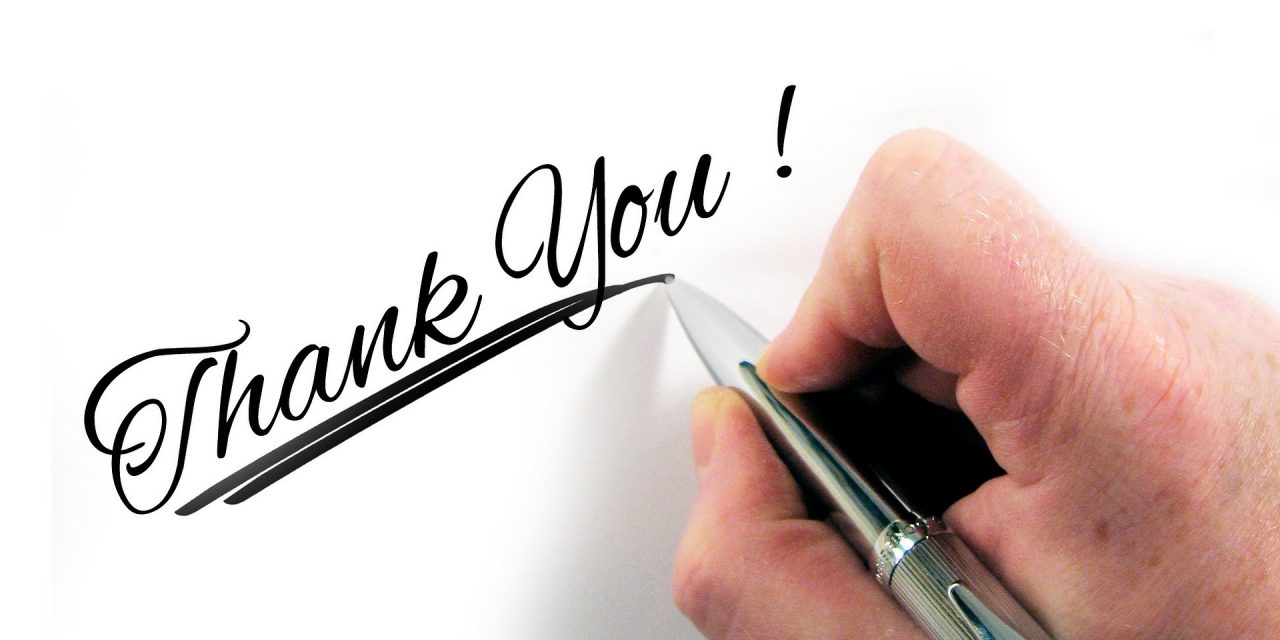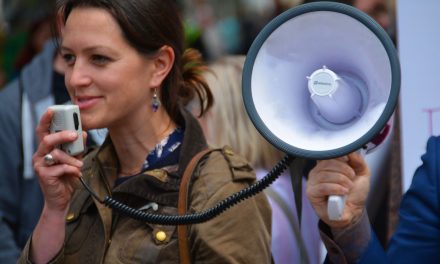Image by Gerd Altmann
There’s a common thread among people who win jobs after they interview with decision-makers. Winning applicants promptly send well-written thank you notes.
Not to belabor the point but as a Seattle business consultant, it’s shocking to see the vast majority of job applicants who take the interviewers and job opportunities for granted.
Yes … yes … yes! The most-overlooked step made by job seekers is a well-written thank you note. It can’t be emphasized enough – a lack of written gratitude is often why job seekers lose to their competition.
Furthermore, to enhance your job-hunting success – it’s not what you write – it’s how you write it.
A great thank-you note accomplishes four goals:
— It helps to enhance your personal branding.
— It corrects any mistakes you make in job interviews.
— It elaborates your salient points.
— It demonstrates your passion that you’ll perform well on-the-job if you’re hired.
What thank-you note strategies will help you get top-of-the-mind awareness with employers?
To win the job, here are specific thank you-note strategies:
1. Think big picture about every contingency
Indeed, you want to show your appreciation as well as enthusiasm to get the job. You definitely want to market yourself by writing a brief elevator pitch – benefits you’ll provide as a new-hire.
But suppose the employer decides to hire your competitor.
A good thank you note will earn you consideration in the event your competitor is hired and immediately let go.
It will also earn you consideration for an alternate job.
2. Make it relevant
Take notes during your interview and refer to them when writing your note. In this way, you’ll be able to personalize your thank you in as little as three paragraphs (three paragraphs are ideal).
Don’t just thank the interviewer for taking time to interview you. Thank them for their consideration.
Cite important points that were discussed in the interview. It will help your personal branding because it will make it possible for your top-of-the=mind awareness as to why you’re the best candidate.
Because it’s easy to forget to make salient points in interviews, remember to write what you wish you had said in the interview.
In specificity, give more details about what you bring to the table.
If you made a mistake in the interview, address it. This is an opportunity to explain you weren’t satisfied with your response to a question, explain why.
3. Expedite your thank you note
Right after the interview, write your note. Then, immediately head for the nearest post office that will be processing mail that day.
Check the post office schedule. You want your thank you to go out the same day as your interview.
You might want to practice. So have extra paper on hand to write your note before sending a final draft.
Note: Be sure to proofread your note before mailing. You’ll be excited, so slow down and read your note out loud to yourself to catch any mistakes.
4. Use the preferred paper
Ideally, you already have purchased either personalized A-2 cards (fold-over note cards) or monarch-size executive stationery containing your name and contact information.
If you don’t personalized paper, buy quality A-2 thank you cards at a stationery store or letterhead.
Either way, an eloquent, topical handwritten note will work well in your thank-you note.
5. Handwrite it
Always handwrite your note. If time is of the essence and a hiring decision will be made right away, and if the interviewer signals it’s OK to send the person an e-mail, send an e-mail, too.
Some people advise sending thank-you e-mails, but I prefer a sophisticated approach – don’t unless your e-mail is a backup “thank you” and you have enough rapport to be invited to send an e-mail.
If hiring decision will be made soon, actually, a better option is to write a stellar thank-you note and hand-delivering it before the hiring decision is made.
6. Include each person with whom you had contact
You should make certain to get business cards from each person who interviewed you. Write each person a thank you note.
If you really want to score, write a note to the assistant who fetched you’re a cup of water or coffee. (That’s another reason to bother to build a rapport with the assistant or receptionist.)
7. Don’t include your business card
Don’t show poor taste by inserting your business card from your current employer. The interviewers will think it’s in bad taste – because it is.
But if you have personal business cards for which you paid and your employer’s name isn’t on it, it’s OK to include your personal card.
8. Watch your tone
You might be very excited about the job, but watch your tone in your writing. Writing words in capital letters and using explanation points are taboo.
It will be overlooked if you’re only 18-years-old applying for an entry-level job. But otherwise, it’s a big no-no. So don’t do it.
9. If necessary, write multiple follow-up notes
If the company hasn’t made a decision, write a follow-up note each week until you’re told someone else was hired.
You’d be surprised how many times employers want to make a hiring decision but will delay the process because of other priorities. Don’t take it personally.
Additionally, there are employers who delay making a hiring decision on purpose. They want to test to the confidence, stability and perseverance of the applicants. This occurs a lot in sales and broadcast media jobs.
10. Look ahead
Ideally during your interview, you inquired about the interview process – what will be the company’s next step?
If you didn’t raise a question about it in the interview, use the thank-you note as an opportunity to ask what is next in the employer’s hiring process.
11. Send a thank-you note even if you decide against the job
If you change your mind, inform the interviewer you’re not interested and in most cases you can explain why – for example, if you decide the job wouldn’t be a good fit.
If the interviewer likes you well enough another option might be presented to you later.
12. Show gratitude even if you aren’t hired
Thank the person for informing you about their decision. But inform the person you are still interested in the company as a possible future employer.
Note: Don’t ask why you weren’t hired. It was likely a subjective decision and about which you don’t want to make the employer feel defensive.
Always stay on the high road and keep the door open. Good luck!
From the Coach’s Corner, related job-hunting strategies:
Are You Struggling to Write Great Cover Letters? Here’s How — If you want to write a cover letter that will entice employers to consider you, there are several precautions to take. Otherwise, you risk sending a letter that employers won’t want to read. Here are seven strategies.
25 Best Practices for Better Business Writing — If you want to accelerate your career or turbo-charge your business, one of your priorities should be good communication. Good writing is necessary in a myriad of ways, including letters, advertising copy and presentations.
Spelling Tips to Enhance Your Communication Skills — Good communication skills start with using proper grammar and spelling. They’re central for your career growth. People who communicate stand head and shoulders above their peers.
Elevator Pitch: Best 11 Tips that Will Push Their Buttons — Whether you’re looking for a job or more customers for your business, one skill you definitely need is a great elevator pitch. Here are 11 tips.
Looking for a Job? Get a Personal Web Site for an Edge — If you’re looking for a job and competition is tough, human resource professionals say a personal Web site can be a valuable asset. Sixty-eight percent of HR professionals are looking to assess personal qualities that aren’t perceptible from a traditional resume.
“ You can’t control the wind, but you can adjust your sails.”
-Yiddish proverb
__________






